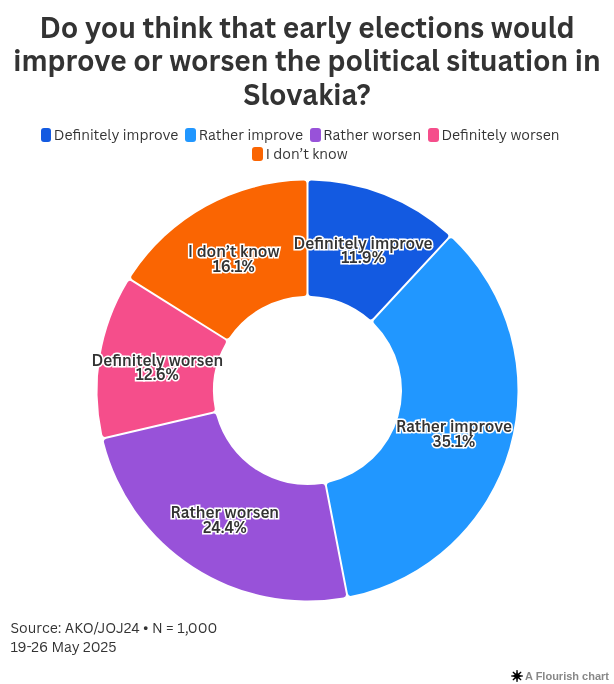Welcome to Today in Slovakia. Whether you are drifting off, still tucked in, or already up with a cup of coffee or tea – here’s what mattered on Tuesday, 24 June.
Hungary’s man speaks for Slovakia
For six hours on Monday, Slovakia’s foreign policy on Russia sanctions appeared to be articulated not by its own government, but by Hungary’s.
Hungarian Foreign Minister Péter Szijjártó, speaking to reporters after the EU Foreign Affairs Council meeting in Brussels, declared that Hungary and Slovakia had jointly decided not to support the EU’s 18th sanctions package against Russia.
The statement was picked up by international and Slovak media – and, as Sme daily points out, went uncorrected by Bratislava for hours.
It was not until after 19:00 that the Slovak Foreign Ministry released its official position via a video featuring Foreign Minister Juraj Blanár. Contrary to Szijjártó’s claim, Blanár said Slovakia was ready to support the sanctions, as they would not harm the Slovak economy.
WHAT HAPPENED? The communications delay exposed Slovakia to reputational damage and stirred confusion, especially as some Hungarian media went as far as reporting that both countries had already vetoed the sanctions – a move that, procedurally, could only happen later this week at the European Council summit of EU leaders.
The confusion seemed plausible to many observers because Szijjártó and Blanár had met in Bratislava just days earlier.
SANCTIONS DANCE: The drama comes amid rising ambiguity from the Slovak government on Russia sanctions. Earlier this month, parliament passed a non-binding resolution instructing ministers not to support new sanctions.
Prime Minister Robert Fico, a vocal sanctions sceptic, interpreted the resolution loosely, saying Slovakia should only oppose measures that directly harm its national interests. He has previously supported sanctions since 2014. Blanár echoed this view on Monday evening, stating that “we assess all sanctions based on their impact on the Slovak economy”. He then confirmed that Slovakia saw no direct harm from the 18th package and was “ready to support it”.
The package includes measures such as lowering the price cap on Russian oil, banning trade in infrastructure linked to Nord Stream I and II, and blacklisting 77 vessels believed to be part of Russia’s so-called “shadow fleet”.
NO VETO, BUT STRINGS ATTACHED: Blanár also hinted at political conditions. He said Slovakia wants assurances that any EU push to fully phase out Russian energy – a separate initiative championed by the Commission – will come with economic support for vulnerable member states like Slovakia.
Energy Commissioner Dan Jørgensen has proposed that no new contracts for Russian energy, including nuclear fuel, be signed after this year, with full phase-out by 2027. The proposal is still under discussion and will not be voted on this week.
TWO-FACED DIPLOMACY: The episode underscores the dual messaging of Fico’s government – nationalist rhetoric at home, pragmatic alignment in Brussels. At times, the only outlier in that alignment is Hungary.
MORE STORIES FROM THE SLOVAK SPECTATOR
Safe Points: Slovak cities unveil a national support network for refugees and migrants, but its future hinges on sustained state funding.
Brains not included: Foreign worker numbers in Slovakia hit an all-time high, but the country is struggling to attract skilled talent amid bureaucratic hurdles and growing dependence on low-wage labour.
Losing ground: Slovakia is falling behind its neighbours in investment and competitiveness, with structural weaknesses now dragging on growth and living standards.
Robe battle: Slovakia’s star anti-corruption judge Pamela Záleská faces disciplinary pressure from her own court amid claims of misconduct and delays.
Sovereign paradox: What looks like a threat to Iranian sovereignty may, paradoxically, serve to assert it, argues philosopher Boris Zala.
Pedal peak: A new EU-funded mountain road opens in Horehronie, as locals aim to turn Slovakia’s “Mont Ventoux” into a cycling hotspot.
If you like what we’re doing and want to support good journalism, buy our online subscription with no ads and a print copy of The Slovak Spectator sent to your home in Slovakia. Thank you.
YELLOW THURSDAYS
A dying market’s last hope
Bratislava’s Nová Tržnica is reinventing itself with monthly Yellow Thursdays, blending chilli-laced larvae, craft stalls, and community spirit in a bid to revive its faded glory. Organisers hope the quirky mix will grow into a tradition and breathe lasting life into the iconic market hall – are you in?
SNAP SHOT
Divided Slovakia
A new AKO poll for JOJ 24 shows the Slovak public split down the middle over the prospect of early elections. Conducted between 19 and 26 May, the survey found 47 percent believe snap elections would improve the current political situation, while 37 percent say they would make it worse.
Who wants the ballot box? Optimism is highest among men, younger voters aged 18 to 49, university graduates, and residents of the more liberal Bratislava and Trnava Regions in western Slovakia. Supporters of opposition parties, as well as some nationalist and minority parties such as SNS (Slovak National Party), the Hungarian Alliance and the populist We Are Family, are also more inclined to favour early elections.
Who is worried? Women, older voters, people with lower levels of education, and residents of more conservative eastern regions like Košice and Prešov are more likely to fear a worsening of the situation. Voters for the ruling Smer party, led by PM Robert Fico, as well as Hlas, Republika (far-right), and the Hungarian Alliance, were the most sceptical. A further 16.1 percent of respondents were unsure or declined to answer.
Backstory check: In December 2024, a separate poll by NMS Market Research for broadcaster TV Markíza found that 44 percent of Slovaks supported moves towards early elections, while one third preferred the coalition to continue with its slim 76-seat majority in the 150-member parliament. That slim margin reflected a period of heightened political uncertainty. Since then, the ruling coalition has somewhat regained its footing, with 79 MPs now backing the government.
IN OTHER NEWS
A new government analysis shows Slovak state offices often lease oversized offices at inflated prices, with half of 82 reviewed Bratislava contracts exceeding market rates. Poorly indexed rental agreements are the main driver of waste, costing taxpayers an estimated €7.8 million annually. Analysts recommend downsizing space, holding open tenders and favouring ownership over renting.
Slovakia’s state nuclear company JAVYS and European startup Newcleo are launching a joint centre to explore how spent nuclear fuel can be reused in next-generation reactors. Backed by the Slovak government, the venture could pave the way for up to four advanced reactors in Jaslovské Bohunice, with estimated costs of €3.2 billion. PM Robert Fico called the deal “a step into the nuclear future” and urged investment in nuclear expertise.
Workers at Slovak food manufacturer GeLiMa will launch a strike on Wednesday over failed wage negotiations, the agricultural workers’ union announced. Talks broke down after management rejected a compromise pay rise and instead threatened a lockout. The French-owned gelatin producer posted €44.1 million in revenue last year and employs 107 people.
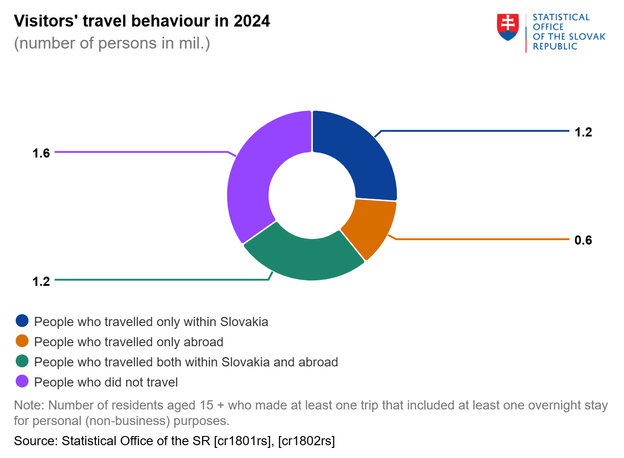 Nearly 3 million Slovaks took part in recreational or other overnight stays at home or abroad last year, accounting for 65 percent of the population aged 15 and over. (source: Statistics Office)
Nearly 3 million Slovaks took part in recreational or other overnight stays at home or abroad last year, accounting for 65 percent of the population aged 15 and over. (source: Statistics Office)
Slovakia’s Association of Private Schools has slammed proposed education reforms, warning they threaten the survival of non-state schools and the rights of over 150,000 children. The Education Ministry plans to cut funding and tighten regulations, which the Association claims could reduce school diversity and amounts to “nationalisation”. A protest campaign titled “NOT LIKE THIS” has been launched in response.
The Education Ministry wants to boost participation of small and medium-sized enterprises in the dual education system by introducing an agency-based model. The proposal forms part of a draft amendment to the Vocational Education and Training Act, now under interministerial review.
The share of Slovak food products on store shelves has dropped for the third consecutive year, reaching just 40.4 percent in 2025 – a 0.8 percentage point decline from last year, according to a survey by the Slovak Food Chamber.
Slovakia’s AI Association (ASAI) has unveiled the country’s first ethical code for the development and use of artificial intelligence, aiming to promote transparency, protect privacy and uphold copyright. The voluntary guidelines, based on international standards, require clear labelling of AI-generated content and responsible handling of deepfakes. ASAI says compliance will help companies build public trust.
WEDNESDAY WEATHER BRIEFING: Clear to partly cloudy and very warm, with highs reaching 30°C to 35°C, slightly cooler in the north. Heat warnings remain in effect across much of western and southern Slovakia on Wednesday. (SHMÚ)
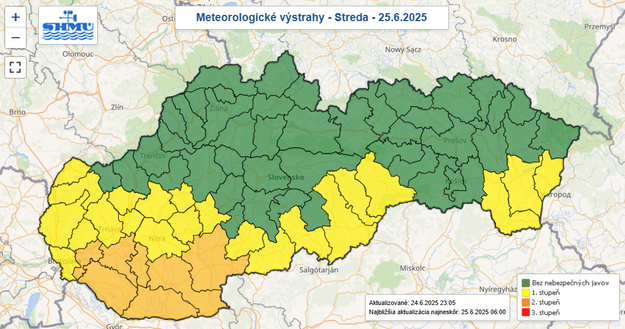 Weather warnings for Wednesday, 25 June 2025 (source: SHMÚ)
Weather warnings for Wednesday, 25 June 2025 (source: SHMÚ)
HAPPY NAME DAY: 25 June is Tadeáš’s turn in the spotlight. If you have got one in your contacts, now is the time for a cheerful všetko najlepšie!
Matúš Beňo has your Wednesday covered.
Thank you for subscribing and reading. It means a lot to us.
P.S. If you have suggestions on how our news overview can be improved, you can reach us at editorial@spectator.sk.
Follow The Slovak Spectator on Facebook, LinkedIn and Instagram(@slovakspectator). For news from Slovakia in Ukrainian, click here or follow Novyny on Telegram, Facebook, and Instagram.
Join our newsletter family and never miss a Slovak moment: Today in Slovakia | Last Week in Slovakia | Slovak Science | Spectacular Slovakia | Slovak Roots


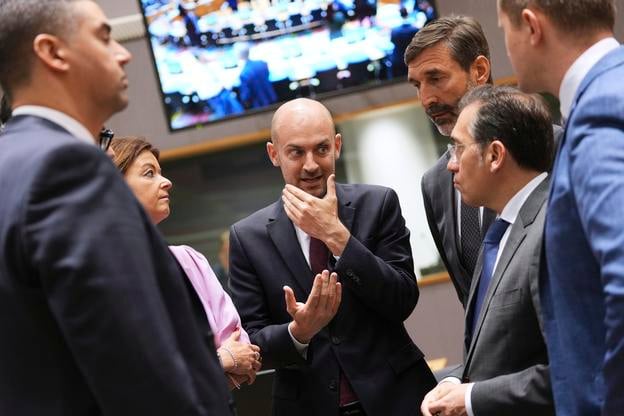 French Foreign Minister Jean-Noel Barrot, centre, speaks with from left, Malta's Foreign Minister Ian Borg, Slovenia's Foreign Minister Tanja Fajon, Slovakia's Foreign Minister Juraj Blanár and Spain's Foreign Minister Jose Manuel Albares Bueno during a meeting of EU foreign ministers at the European Council building in Brussels, Monday, 23 June 2025. (source: TASR/AP/Virginia Mayo)
French Foreign Minister Jean-Noel Barrot, centre, speaks with from left, Malta's Foreign Minister Ian Borg, Slovenia's Foreign Minister Tanja Fajon, Slovakia's Foreign Minister Juraj Blanár and Spain's Foreign Minister Jose Manuel Albares Bueno during a meeting of EU foreign ministers at the European Council building in Brussels, Monday, 23 June 2025. (source: TASR/AP/Virginia Mayo)
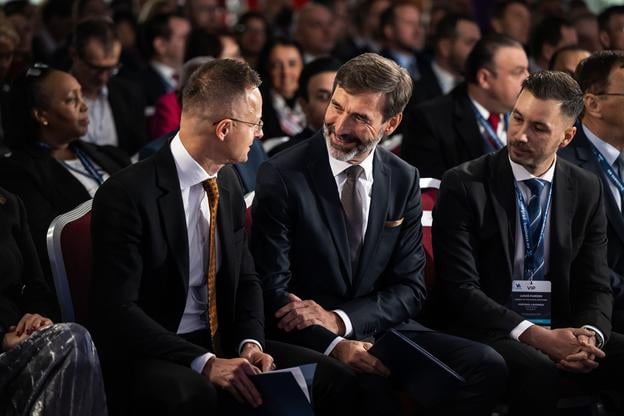 Hungarian Foreign Minister Peter Szijjártó (L) and Slovak Foreign Minister Juraj Blanár attend the Visegrad 4 Business Conference in Hotel Marriott in Budapest, Hungary, 14 November 2024. (source: TASR/MTI/Marton Monus)
Hungarian Foreign Minister Peter Szijjártó (L) and Slovak Foreign Minister Juraj Blanár attend the Visegrad 4 Business Conference in Hotel Marriott in Budapest, Hungary, 14 November 2024. (source: TASR/MTI/Marton Monus)
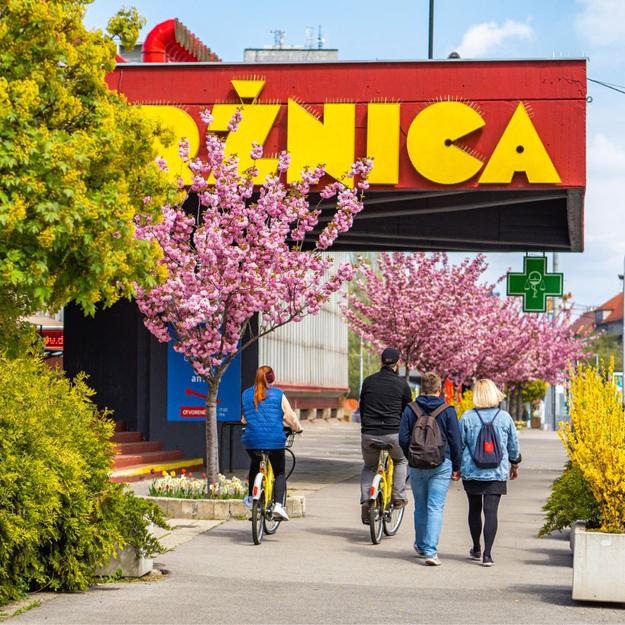 New Market Hall (Nová Tržnica) in Bratislava’s Nové Mesto. (source: Facebook - Nová Tržnica)
New Market Hall (Nová Tržnica) in Bratislava’s Nové Mesto. (source: Facebook - Nová Tržnica)
